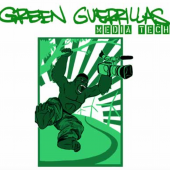
Abstract: The Green Guerrillas Youth Media Tech Collective, a community organization based in Ithaca, New York, set out to define sustainability in their own terms by giving a diverse group of local adolescents the opportunity to engage subjects of environmental and social justice through digital media production within the auspices of a unique afterschool job-training program. Interviews with youth participants and adult mentors illustrate key concepts for environmental and sustainability educators desiring to facilitate engaging learning environments utilizing multimedia. Excerpts of their interviews provide a lens into the workings of a non-formal educational environment that explicitly embraced media literacy, media arts production, and community engagement to advocate for issues of justice and sustainability while facilitating opportunities for ecological learning. This case study highlights the potential of digital storytelling to foster students’ knowledge retention, connection to nature, sense of empowerment, and ability to create positive change in their communities.
Continue Reading
In this Q&A, Journal of Sustainability Education senior editor Amanda Bielawski interviews Diana Virgovicova, recipient of the 2019 Stockholm Junior Water Prize (SJWP). Virgovicova was among the SJWP recipients who recently issued a joint statement to the United Nations (UN) General Assembly that focused on the urgent need for water action, recognizing its intricate links to climate change. Rooted in the praxis framework, the joint statement focused on the critical role sustainability education, specifically, must and will play in turning scientific knowledge about the water-climate connection into actual action through policy change and other means. In this interview, Virgovicova underscored this point: “Education is the way to solve the water-climate sustainability crisis. We need to get more people involved. I think it is regrettable that environmental education is not a required assessment in schools.”
Continue Reading